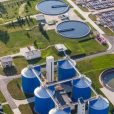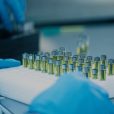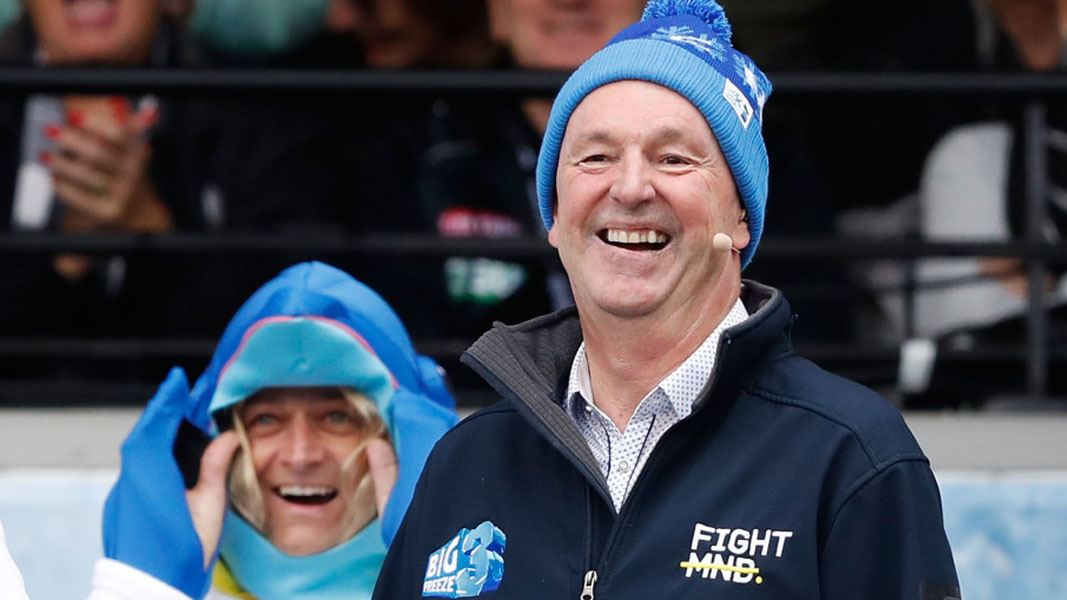There is nothing fun about plunging into freezing cold ice water during a cold Melbourne winter. However, each year, bold celebrities participate in the annual ‘Big Freeze’ at the Melbourne Cricket Ground before the Melbourne vs Collingwood AFL clash on the Queen’s Birthday weekend.
The event, run by FightMND is designed to raise funds for research into Motor Neurone Disease, similar to the ALS Ice Bucket Challenge which had everyone, everywhere dumping chilly water over their heads.
Since its founding in 2014 by former AFL player Neale Daniher, FightMND has committed over $48 million in research to help find a cure for the disease. Over $800, 000 of that has been awarded to clinical stage biotechnology company PharmAust (ASX: PAA) and collaborators Calvary Healthcare and Macquarie University to further their research.
Today, PharmAust has announced the receipt of ethics approval from Monash Health Human Research Ethics Committee, giving them the green light to go ahead with their planned phase 1 clinical trial in humans.
The trial will assess monepantel (MPL) as a treatment for amyotrophic lateral sclerosis (ALS) and motor neurone disease (MND).
ALS/ MND are a group of diseases that affect nerve cells that control essential bodily functions,including movement and breathing. The rare, and fatal disease has devastating effects and burdens on patients and their families, with life expectancy after diagnosis averaging only 27 months. There are an estimated 140,000 new diagnoses of ALS/MND worldwide each year, compounding the need for better treatments to prolong life and improve quality of life.
PharmAust’s trial will be conducted in collaboration with principal investigators Dr Susan Mathers of Calvary HealthCare Bethlehem and Professor Dominic Rowe of Macquarie University to determine the efficacy and safety of MPL.
Commencing later this year, 12 people living with MND will take bespoke MPL tablets according to a conventional dose-escalation design, with each level of dose escalation lasting 28 days.
Preclinical data has shown that MPL has the potential to activate molecular pathways relevant to MND treatment. The compound could possibly reduce the rate of degeneration and loss of motor neurons in brainstem, effectively decelerating disease progression. The trial can be extended to Phase 2 if appropriate.
PharmAust expects that MPL will receive orphan drug designation by the FDA for treatment of MND. Certain drugs can be granted this for the treatment of rare diseases. Orphan drug status also includes financial and supportive benefits to fast track drug research and development .
Chief Scientific Officer at PharmAust, Dr. Richard Mollard said: “PharmAust is privileged and delighted to be working with Dr Mathers, Professor Rowe, FightMND, Monash Health and Macquarie University with the common aim of finding positive outcomes for people living with ALS/MND. PharmAust is especially thankful to FightMND and all its supporters who make this type of work possible.”
With these promising developments, it seems that sliding into an ice cold water bath every Melbourne winter actually does more good than you’d think.
For more information on getting involved in the Big Freeze and raising funds for much needed research, head to FightMND’s website here.
- Parkinson’s UK backs Pharmaxis with $5 million to slow the onset of incurable disease with ‘ground breaking’ trial - September 1, 2022
- How this company is developing medtech to support Indigenous community health - August 22, 2022
- A round of ap-paws for PharmAust, changing the ruff prognosis for dogs with lymphoma - August 17, 2022













Leave a Comment
You must be logged in to post a comment.